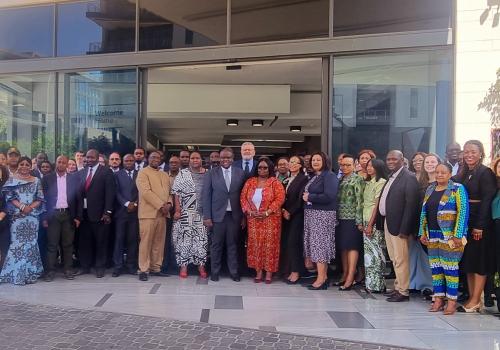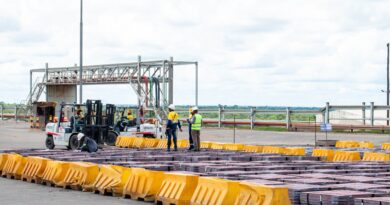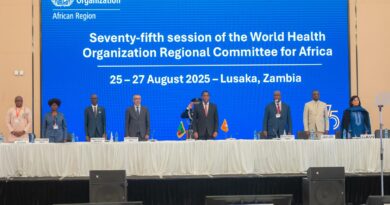SADC/UNHCR High-Level Technical Meeting Focuses on Strengthening Protection and Solutions for Refugees and Migrants in Mixed Movements
The Southern African Development Community (SADC) Secretariat, in partnership with the United Nations High Commissioner for Refugees (UNHCR), convened a high-level technical meeting in Pretoria from December 3-4, 2024, to discuss the route-based approach aimed at strengthening protection and solutions for refugees and migrants amid mixed migration movements.
The meeting brought together key stakeholders, including representatives from SADC Member States, national asylum institutions, immigration and foreign affairs departments, and international organizations such as the International Organisation for Migration (IOM), United Nations Office on Drugs and Crime (UNODC), International Labour Organisation (ILO), and United Nations Children’s Fund (UNICEF).
The event focused on developing a coordinated strategy to address the complexities of mixed migration, where refugees, migrants, and asylum-seekers often move along the same routes, creating unique challenges for host, transit, and destination countries.
In her opening remarks, Ms. Chansa Kapaya, UNHCR Regional Director for Southern Africa, emphasized the critical need for improved data collection and information-sharing. “Accurate, timely data is not only essential for evidence-based policymaking but is also key to enabling effective responses to the vulnerabilities faced by refugees and migrants,” Kapaya stated.
The meeting also saw Professor Kula I. Theletsane’s representative, Ms. Kealeboga Moruti, Senior Officer Public Security at the SADC Secretariat, affirming the importance of well-managed migration.
She pointed out that the SADC Regional Indicative Strategic Development Plan (RISDP) 2020–2030 recognizes the immense potential of migration when properly managed, while the SADC Regional Migration Policy Framework 2020–2030 offers a structured policy direction to ensure migration is safe, dignified, and orderly.
The discussions highlighted several priorities, including enhancing data collection and analysis, prioritizing protection and humanitarian assistance, and strengthening regional partnerships and coordination platforms. The meeting concluded with a commitment to adopt a more human-centered and effective response to mixed migration trends in the region.
The route-based approach, endorsed at the meeting, will allow SADC Member States to work together more efficiently and predictably in addressing the challenges posed by mixed movements, ultimately ensuring better protection and long-term solutions for those on the move.



